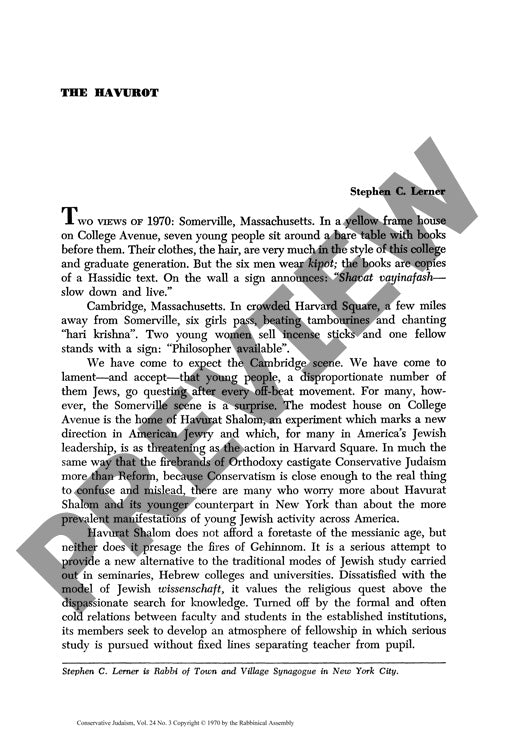The Havurot
Couldn't load pickup availability
In the countercultural ferment of the late 1960s, young American Jews launched an ambitious experiment to revolutionize Jewish education and community life. The havurot movement, anchored by Havurat Shalom Community Seminary in Somerville, Massachusetts, and the New York Havurah, rejected traditional institutional models in favor of intimate fellowship and spiritual exploration. Through ethnographic observation and participant interviews, this research reveals how these communities of approximately thirty-eight members prioritized religious quest over conventional academic scholarship, diving deeply into mystical and Hasidic texts while maintaining rigorous Sabbath and kashrut observance. Founded in 1968 by Rabbi Arthur Green and colleagues, Havurat Shalom exemplified both the movement's achievements and limitations: while successfully creating vibrant centers of Jewish learning that attracted passionate young scholars, the havurot's anti-institutional stance and generational insularity potentially constrained their broader influence. Despite their possibly ephemeral nature, these experimental communities offered crucial insights for American Jewish institutions, demonstrating the vital importance of meaningful worship, intensive study opportunities, and authentic community building—especially in addressing youth alienation from conventional synagogue and seminary structures.

More Information
-
Physical Description
-
Publication Information
Published 1970
ISBN
-
Publication Credits
Stephen Lerner

